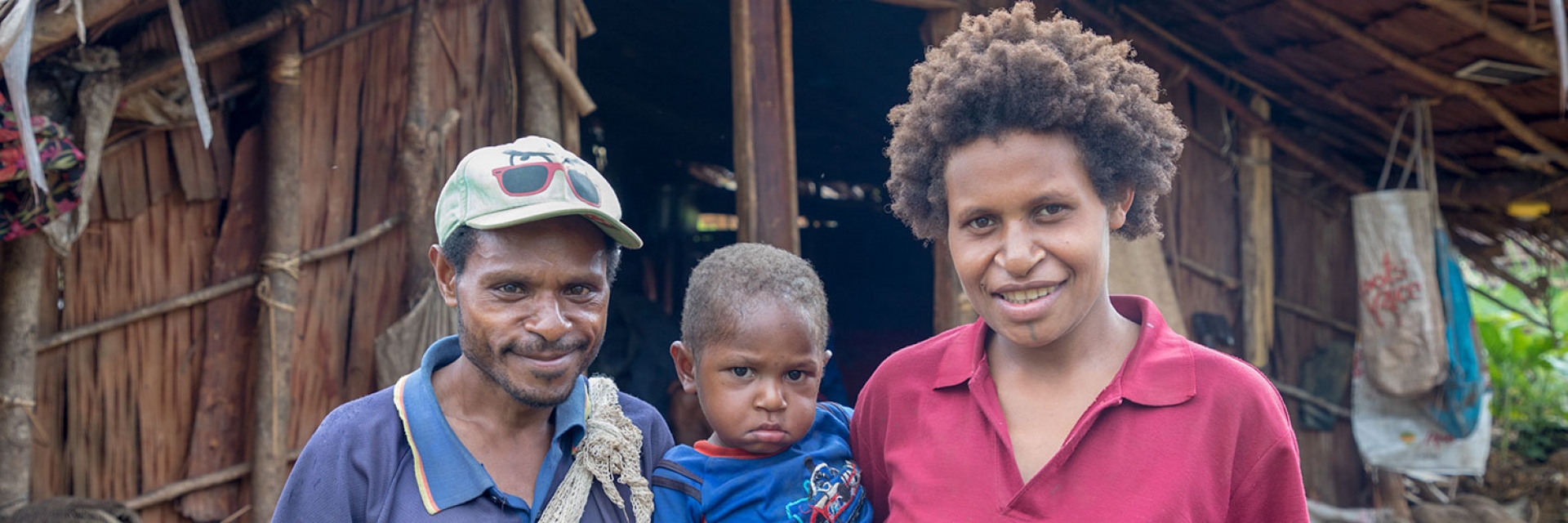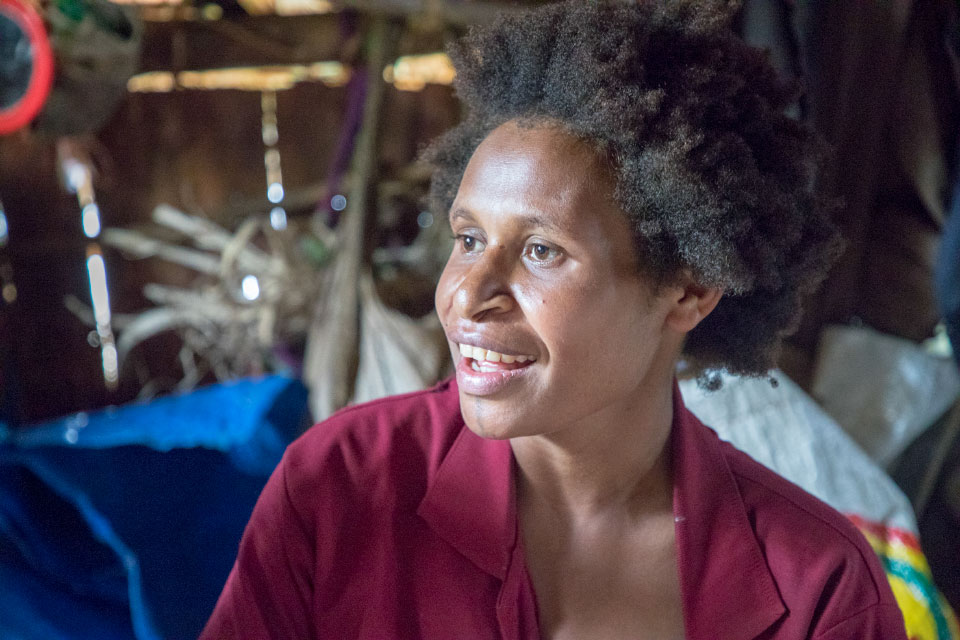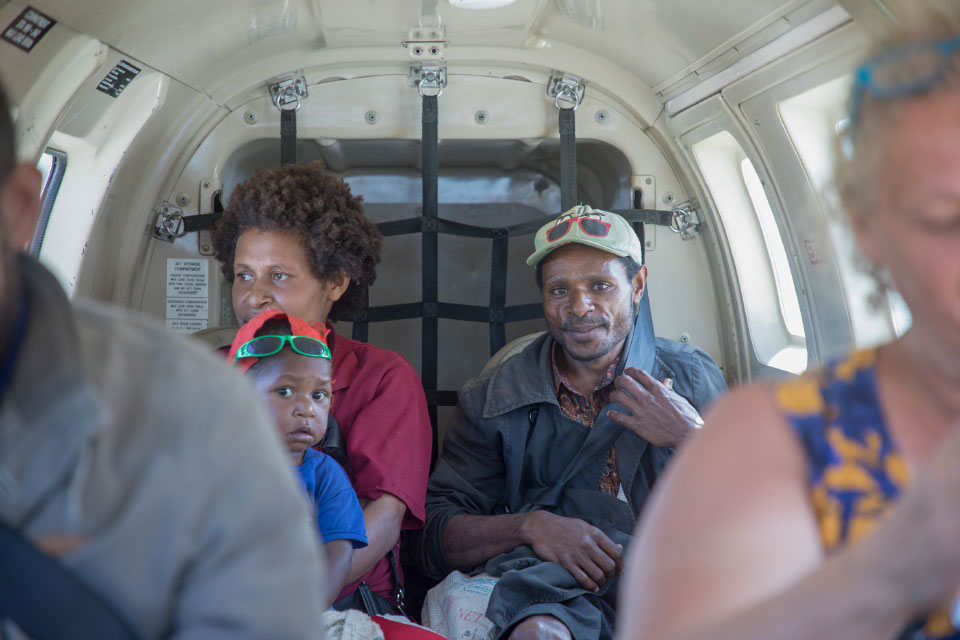
Images source: CARE
A young family longs for “normal” after devastating earthquake



“Before the earthquake we were happy, and life was normal,” said Jocelyn. “I was four months pregnant when it happened, and I had a one-year-old son. I was so afraid. I grabbed the baby and ran. My first thought was my baby, but I was so relieved to see my husband alive.”
Jocelyn and her husband Aii were not together when an earthquake measuring 7.5 on the Richter scale devastated large parts of Papua New Guinea in February 2018.
“When the earthquake happened I was in the men’s house for village leaders,” said Aii. “Jocelyn was in the family home with our son, Sasty. I thought of them straight away and ran home to find them but they were not there. Our house was next to the river and I was afraid the landslide had taken them. I looked everywhere for them and found them safe in another house. I was so scared. I thought it was the end of the world.”
After reuniting, Aii, Jocelyn and Sasty fled to Huiya Village, a small hamlet which was home to just 90 inhabitants. But after the seven surrounding villages were completely or partially destroyed – buried under landslides – the survivors flooded into Huiya. Now, the village was hosting 1440 displaced men, women, boys and girls.
“We came to this village because it was the safest place,” said Aii. “Everywhere else was on a mountainside – in very dangerous places. I lost two cousins who died during the earthquake, along with their husbands and one of their children.”
Life in Huiya, however, was not easy for the hundreds of displaced families who had left everything behind and sought refuge there.
“Before the earthquake, there was enough food for everyone,” said Aii. “We ate to the max and were very happy. But we lost our garden: bananas, sweet potato, sago – all destroyed. Whatever was left, the pigs must have finished off. Now we have to choose who will eat each day.”
“Our houses were the size we needed and there was room for everyone.”
Jocelyn said, “We miss our village so much, and the normal life we used to have.”

With support from the Humanitarian Coalition and Global Affairs Canada, CARE Canada distributed shelter and hygiene kits to families displaced by the earthquake. According to Jocelyn, “the soap and the washing powder were the best because it kept us clean and hygienic.”
Aii used the shelter materials to build a temporary home for his family, who had been sleeping outdoors for two weeks. He said the bush knife and axe were the best for him because he used them to clear space for their new garden.
But their troubles were not over yet.
When her pregnancy reached eight months, Jocelyn learned there could be complications. CARE evacuated her by plane to a maternal health centre in the western city of Mogulu, where she could give birth safely.
2018 was a year of upheaval in so many ways for Jocelyn, Aii and Sasty. Jocelyn summed up her feelings this way: “I hope that in the future we have a good house, that we can sleep well, live well, and eat well, and that my mind will return to normal, like it was before.”
Canadian partners and donors are working very hard to make that possible.